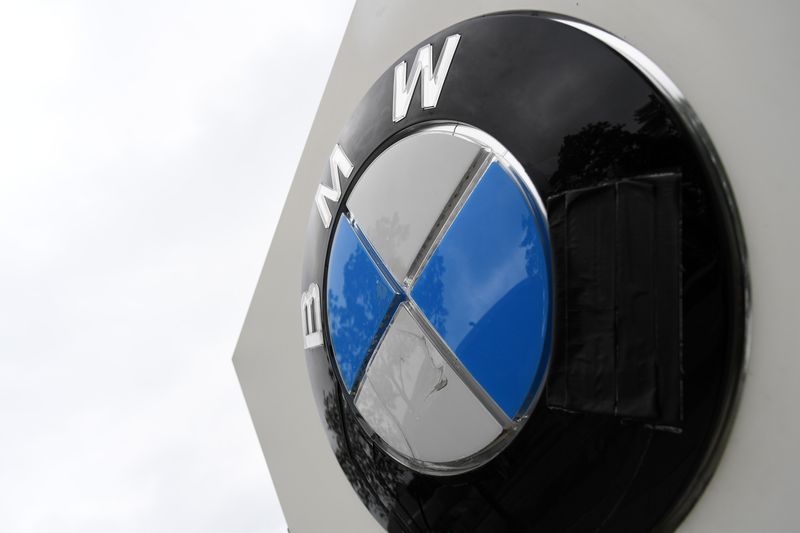
© Reuters. FILE PHOTO: The logo of German car manufacturer BMW is seen at the company headquarters in Munich, Germany, May 14, 2020. REUTERS/Andreas Gebert
2/2
BERLIN (Reuters) – A consortium of carmakers and battery producers including BMW, Umicore and BASF will work alongside technology partners to develop a “battery passport” that traces the content and carbon footprint of batteries in Europe, Germany’s economy ministry said on Monday.
The consortium of 11 partners received 8.2 million euros ($8.78 million) of funding to develop a common taxonomy and set of standards for gathering and disclosing such data, which could soon become mandatory under European Union regulations.
A proposal by the European Commission due to be discussed in trilogues later this year states that rechargeable electric vehicle (EV), light transport and industrial batteries sold in Europe must disclose their carbon footprint from 2024 and comply with a CO2 emissions limit from 2027.
An obligation to disclose the content of recycled raw materials in those batteries would apply from 2027, followed by requirements to use a minimum share of recycled cobalt, lithium, nickel and lead from 2030.
The German consortium is the first project in Europe to attempt to design a digital product to meet these regulations, Germany’s economy ministry said.
($1 = 0.9335 euros)


Be the first to comment